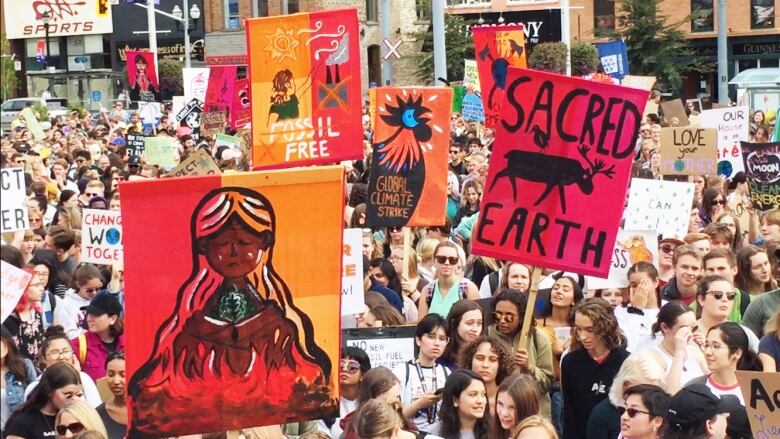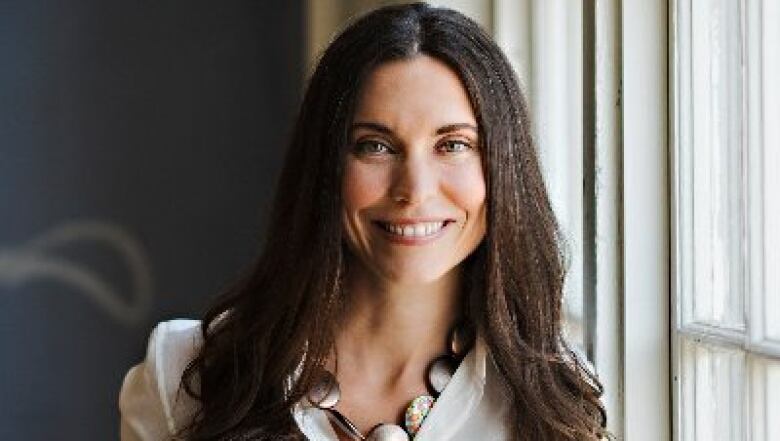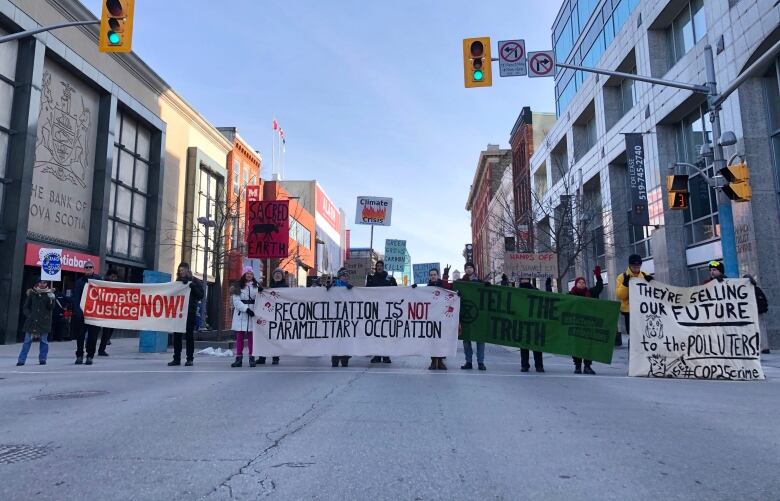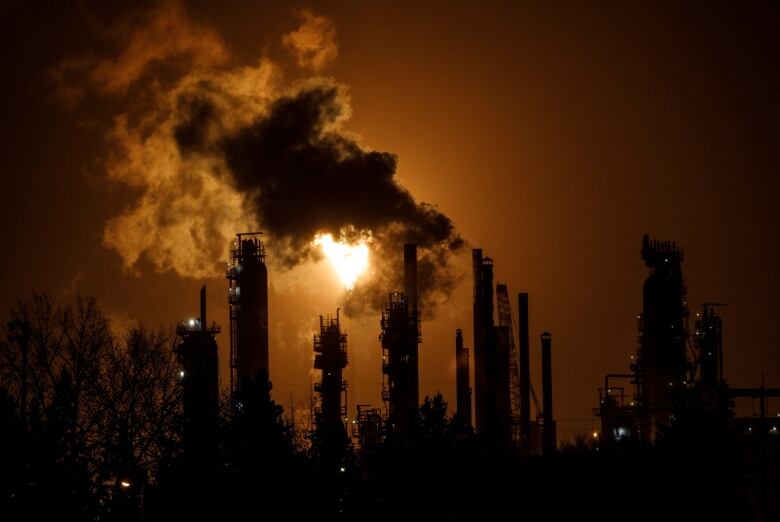Urgency over climate crisis makes this federal election feel different from even 2 years ago: UW prof
UN report brought home that 'the climate crisis is only going to get worse,' Angela Carter says

Climate change is one of the top issues in this federal election, not unlike the 2019 campaign.
But Angela Carter says there's a difference this time.
Carter, an associate professor in the department of political science and the Balsillie School of International Affairs at the University of Waterloo, says ongoing climate strikes and the COVID-19 pandemic have brought into focus just how necessary it is to think about the future.
COVID-19, she says, "wasn't just a health crisis, it was notably a crisis of inequality."
The pandemic gave people space to think about the issues important to them, including climate, Indigenous rights and Black Lives Matter.

That, combined with a dire report from the United Nations Intergovernmental Panel on Climate Change that highlighted the consequences of not meeting targets on climate change, is driving home the importance of this issue, she said.
"There is a growing awareness that the climate crisis is, of course, also a health crisis. And we have leaders, international leaders, Mark Carney is one of these, at the United Nations who said that the climate crisis in 50 years is going to look like a COVID pandemic every single year," she said.
"At the turn of the century, it's going to be that scale of health crisis."
Listen to the full interview with Angela Carter from CBC K-W's The Morning Edition:
Climate change 'overshadows' other issues
A survey on the CBC Kitchener-Waterloo website asking people what their top issues are in this federal election showed the number one answer asclimate change.
- Have an election question for CBC News? Email ask@cbc.ca. Your input helps inform our coverage.
Julia Chernushevich, a voter in Waterloo, said during a recent panel discussion on CBC K-W's The Morning Edition, that she has a number of concerns, but "climate change just completely overshadows" everything.
"I just feel like financially, even if you're not a big climate advocate or have been an environmentalist for a lot of years,it makes sense because it's cheaper to mitigate these problems than to have really expensive adaptations, building resilient infrastructures, having to relocate people, manage new agricultural practices, all that," she said.
Alex Baran, a voter in Kitchener Centre, saidclimate is a top issue for him, too.
"It's a matter of making sure that all the progress that's being made continues to be made, which includes cleaning up the dirty polluters and actually doing something effective to clean them up," Baran said.

4 major parties say action needed
The four major parties say they will take action on climate change:
- The Liberals say on the party's website that they will accelerate the shift to net-zero emissions by 2050 and set mandatory targets for new vehicles to be zero-emissions by 2035. The party says it has also taken "real action" by putting a price on pollution.
- The Conservativeplatform lists a number of measures including that the party would introduce personal low carbon savings accounts where people pay into when they buy hydrocarbon-based fuel, tie industrial carbon price to trading partners like the European Union and U.S., introduce a zero emission vehicle mandate and the party would also "stand up" to major polluters around the world, naming China specifically.
- The NDP platform also lists a number of measures includinga target of reducing the country's emissions "by at least 50 per cent from 2005 levels by 2030." The party says it will create a climate accountability office and work with provinces to ensure corporate climate accountability as well as create jobs for workers to transition.
- The Green Party's recovery plan includes a 60 per cent reduction in emissions from 2005 levels by 2030, annual carbon tax increases, a detailed carbon budget setting out greenhouse gas emissions, a tariff on certain imports from areas with "weak climate policies," cancellation of all new pipeline projects and a plan to transition fossil fuel workers to new jobs.

Need to confront oil and gas
Carter, whose research focuses on environmental policy and politics surrounding oil extraction in Canada's oil producing provinces, says neither the Liberals nor the Conservatives are confronting emissions from oil and gas production and that's "a major problem."
- Find out who's ahead in the latest polls with our Poll Tracker.
- Use Vote Compass to compare the party platforms with your views.
She said the Liberals have made "important advances on climate."
"But at the same time, under this Liberal government, we've actually seen Canadian emissions increase," she said.
Any movement on legislation for a just transition which is supporting themovement of workers, provinces and communities away from fossil fuels to other industries has stalled because of the election, although the Liberals have promised to do consultations in the fall if re-elected, she noted.
The Conservatives have a major hurdle when it comes to climate change, Carter said, because a number of party members didn't want to acknowledge climate change is real at a party convention in March of this year.
"This tells us that within the Conservative Party, there is still widespread climate denialism, outright denying that climate change, the climate crisis, is even happening," she said.
"This is a problem for voters who see the climate crisis unfolding and who want to articulate that through a vote."
The NDP and Greens often suffer from strategic voting, Carter said, with people worried a vote for these parties may lead to the party they don't want getting into power winning.
Rise of youth vote
Carter saidshe expects to see young people at the polls in this election and political parties should take note.
"I think this is a different political moment and citizen views are shifting and the urgency is growing more and more as young people age into voting. Young people are driving along climate votes," she said.
She encouraged people to read up on the promises from the parties and local candidates and find the person who best reflects their own thoughts on the climate change issue.
"The Intergovernmental Panel on Climate Change has just brought home to us once again that the climate crisis is only going to get worse," she said.
"What this signals to people is that whatever we've been doing for the last decade hasn't worked out for us very well now, has it? And we need a huge social change. And this requires an energy change as well if we're going to meet the climate crisis head on," Carter added.
"This election feels different and I think we can expect people will be voting differently this time, too."
With files from Hala Ghonaim












_(720p).jpg)


 OFFICIAL HD MUSIC VIDEO.jpg)
.jpg)



























































































